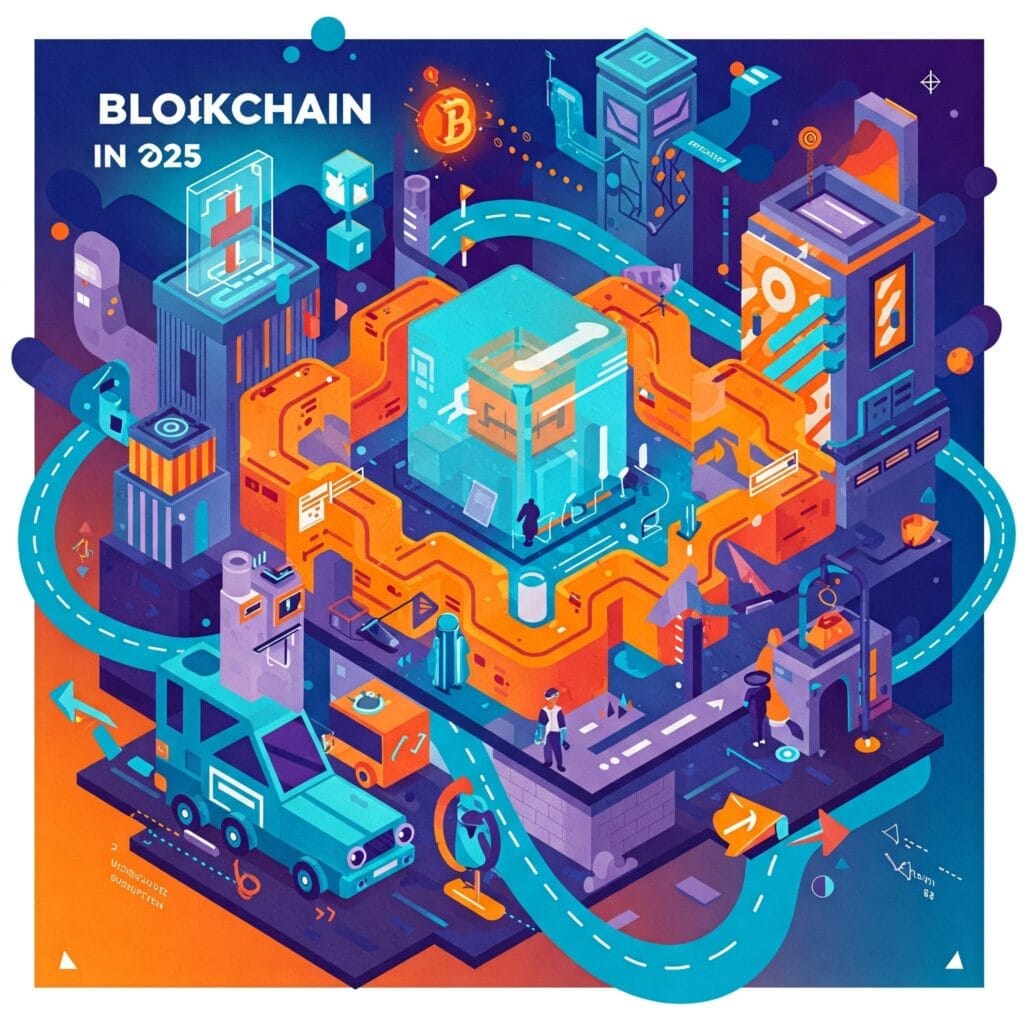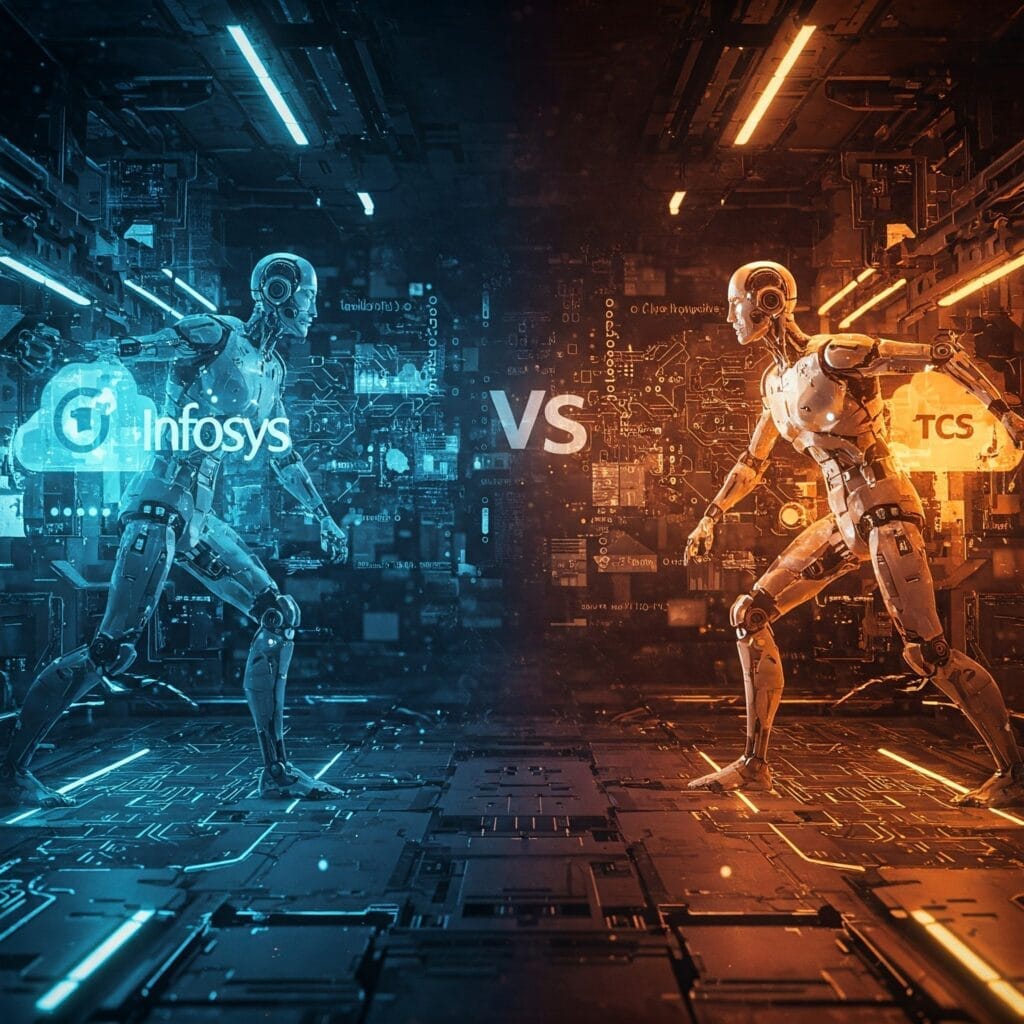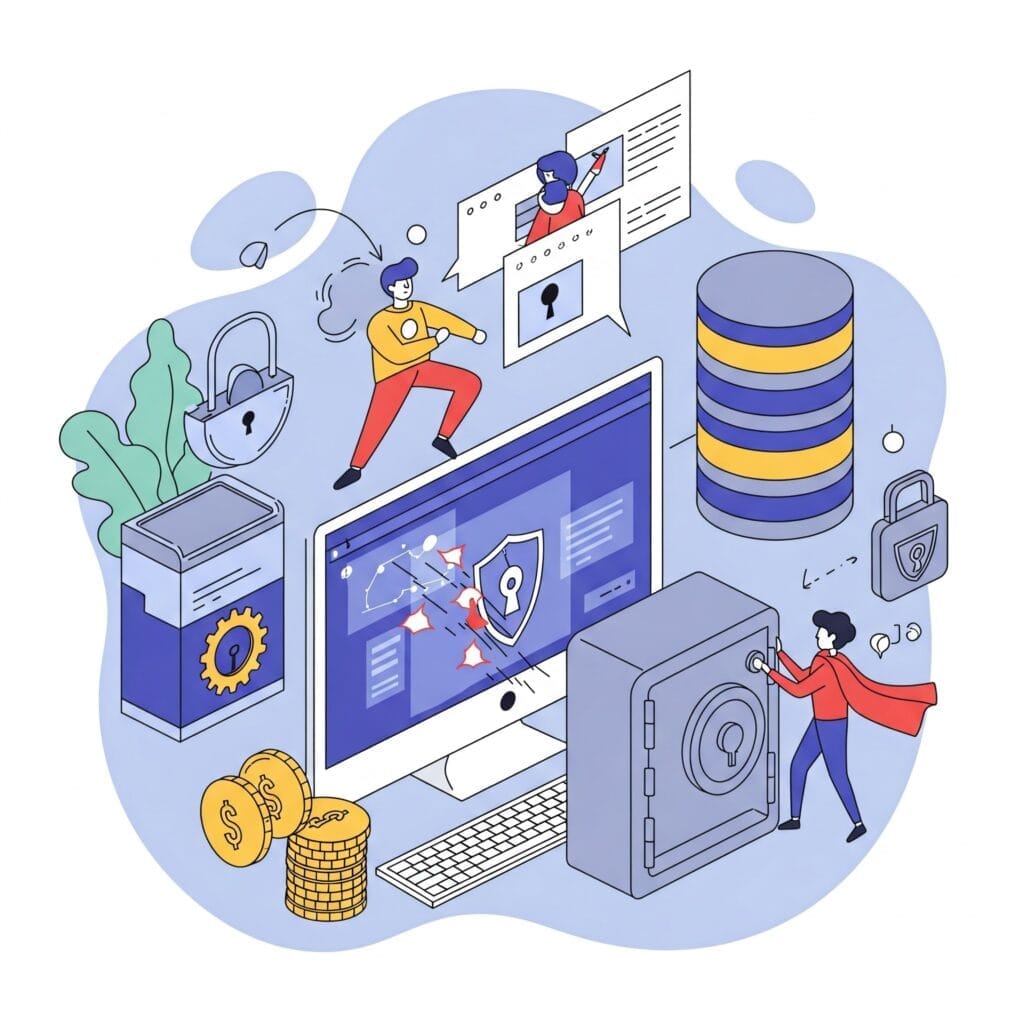Blockchain in 2025: Unstoppable Disruption
Discover how Blockchain in 2025 is redefining industry disruption in finance, healthcare, and more. Get actionable insights now and join the digital revolution!

Table of Contents
- Introduction & Blockchain Overview
- Disrupting Finance & Banking
- Transforming Healthcare
- Revolutionizing Supply Chain & Logistics
- Innovating Real Estate
- Energizing Energy & Utilities
- Disrupting Entertainment & Media
- Enhancing Public Sector & Government
Introduction & Blockchain Overview
The world of Blockchain in 2025 is evolving at a breakneck pace, capturing the attention of industries and innovators alike. In today’s rapidly shifting technological landscape, blockchain in 2025 is not just a buzzword—it’s a fundamental shift towards decentralized security, transparency, and efficiency. Companies across various sectors are exploring how this groundbreaking technology can overcome traditional limitations and solve age-old problems.
What is Blockchain in 2025?
Blockchain technology, once synonymous with cryptocurrencies, has expanded far beyond digital money. Blockchain in 2025 now encompasses a sophisticated network that facilitates secure transactions, immutable record-keeping, and smart contracts across multiple industries. This evolution answers common questions like “What is blockchain technology?” and “How does blockchain work?” by providing a framework that’s both innovative and adaptable.
Evolution of Blockchain
The transformation from early blockchain systems to the advanced iterations we see in blockchain in 2025 is remarkable. Initially designed to support Bitcoin, blockchain technology has matured through successive innovations and integrations. The journey from basic ledger systems to comprehensive, industry-disrupting solutions reflects the rapid pace of change and increasing sophistication in blockchain applications.
Why Blockchain Now?
In an era defined by data breaches and inefficiencies, the urgency for robust, secure systems has never been higher. Blockchain in 2025 offers an answer to these challenges by enhancing transparency and reducing reliance on centralized authorities. Its potential to streamline processes, cut costs, and build trust is driving a wave of adoption across sectors—from finance to public services.
Disrupting Finance & Banking
Finance remains at the forefront of blockchain adoption. The transformation seen with blockchain in 2025 in the financial sector is unparalleled, driving innovations that ensure secure, transparent, and efficient transactions.
Blockchain Revolution in Finance
Financial institutions are rapidly embracing blockchain in 2025 to modernize payment systems, reduce fraud, and simplify cross-border transactions. By integrating blockchain, banks and fintech companies are addressing age-old challenges such as high transaction fees and lengthy settlement times. For instance, smart contracts are automating routine processes, ensuring instant execution and verification of transactions.
Security & Transparency
One of the standout benefits of blockchain in 2025 is its ability to bolster security and transparency. Every transaction is recorded on an immutable ledger, reducing opportunities for fraud and providing unparalleled accountability. This is particularly crucial in finance, where trust and security are paramount. The inherent characteristics of blockchain answer the frequently asked query, “Is blockchain secure?” by demonstrating its robust, decentralized nature.
Case Study: FinChain’s Breakthrough
Consider the real-world example of FinChain, a leading fintech startup that adopted blockchain in 2025 to transform its cross-border payment system. By leveraging blockchain, FinChain reduced transaction costs by 30% and cut processing times in half. This case study exemplifies how blockchain integration can lead to tangible improvements in operational efficiency and customer trust, setting new benchmarks in the finance industry.
Custom Data Visualization 1:
Imagine a pie chart where 45% of financial institutions are already experimenting with blockchain, 35% are in the pilot phase, and 20% remain skeptical. This visualization underlines the growing momentum behind blockchain adoption in finance.
Transforming Healthcare
Healthcare is another industry ripe for transformation with blockchain in 2025. The technology is set to revolutionize patient data management, clinical trials, and supply chain traceability in pharmaceuticals.
Enhancing Data Security
Patient privacy and data security are critical concerns in healthcare. Blockchain in 2025 introduces an immutable system for storing medical records, ensuring that sensitive data is accessible only to authorized personnel. This mechanism also simplifies compliance with regulations such as HIPAA, answering the common question, “How does blockchain protect personal data?”
Improving Patient Care
With blockchain, healthcare providers can ensure that patient records are accurate, up-to-date, and easily transferable between institutions. This seamless flow of information leads to better diagnosis, treatment planning, and overall patient care. Integrating long-tail keywords like “blockchain adoption in healthcare for improved patient outcomes” helps illustrate the real-world benefits of this technology.
Blockchain in Medical Trials
Clinical trials, often fraught with data inconsistencies and delays, benefit enormously from blockchain in 2025. By using blockchain for trial data management, researchers can maintain a tamper-proof record of trial results, ensuring data integrity and facilitating faster regulatory approvals.
Custom Data Visualization 2:
Visualize a bar graph that depicts a 50% increase in blockchain-related investments in healthcare from 2024 to 2025. This upward trend highlights the growing confidence in blockchain’s ability to revolutionize patient care and data security.
Revolutionizing Supply Chain & Logistics
Supply chain management has long been plagued by issues of transparency, traceability, and inefficiency. Blockchain in 2025 is poised to address these challenges by providing end-to-end visibility and accountability.
Ensuring Traceability
One of the key applications of blockchain in 2025 in supply chain management is enhancing traceability. Every product movement—from manufacturing to delivery—can be recorded on the blockchain, ensuring that each step is transparent and verifiable. This answers the frequent query, “How can blockchain improve supply chain traceability?”
Boosting Efficiency
By automating transactions and reducing the need for intermediaries, blockchain technology streamlines operations. Companies using blockchain report significantly faster shipping times and reduced administrative overhead. The technology’s potential to cut operational costs and improve efficiency is a major draw for logistics companies.
Overcoming Challenges
While the benefits of blockchain in 2025 are clear, the transition is not without challenges. Interoperability issues and integration with legacy systems remain key hurdles. However, with ongoing advancements and industry collaborations, these obstacles are steadily being overcome.
Comparison Table: Traditional vs. Blockchain-Enhanced Supply Chain
| Feature | Traditional Supply Chain | Blockchain-Enhanced Supply Chain |
|---|---|---|
| Data Transparency | Limited, siloed systems | Full transparency via shared ledger |
| Transaction Speed | Slow, with multiple intermediaries | Fast, automated smart contracts |
| Cost Efficiency | Higher due to intermediaries | Lower operational costs |
| Traceability | Often fragmented | End-to-end traceability |
| Security | Vulnerable to fraud | Robust, immutable records |
This comparison table succinctly illustrates the transformative impact of blockchain in 2025 on supply chain operations.
Innovating Real Estate
The real estate industry, historically burdened by paper-based transactions and opaque processes, is experiencing a renaissance thanks to blockchain in 2025.
Smart Contracts in Property Deals
Blockchain enables the use of smart contracts in real estate transactions. These self-executing contracts automate agreements, reducing the need for intermediaries such as brokers and lawyers. As a result, property deals become faster, more secure, and less expensive. This innovation addresses questions like “What are smart contracts and how do they work in real estate?”
Transparent Transactions
In the realm of real estate, transparency is crucial. With blockchain, every transaction—from listing to closing—is recorded on an immutable ledger, ensuring that all parties have access to accurate and reliable data. This reduces the risk of fraud and increases buyer and seller confidence.
Market Growth & Investment Opportunities
Investors are increasingly turning to blockchain-enabled platforms for fractional property investments, opening up real estate markets to a broader audience. The integration of blockchain in real estate not only simplifies transactions but also democratizes investment opportunities, paving the way for a more inclusive market.
Custom Data Visualization 3:
Picture a line chart showing a steady increase in blockchain-based real estate transactions from 2024 to 2025, with a projected growth rate of 40% over the next five years. This visualization underscores blockchain’s potential to reshape the real estate market.
Energizing Energy & Utilities
The energy sector is undergoing a digital transformation with blockchain in 2025 at the helm. By decentralizing energy trading and optimizing grid management, blockchain is set to revolutionize how energy is produced, distributed, and consumed.
Decentralizing Energy Trading
Blockchain enables peer-to-peer energy trading, allowing consumers to buy and sell surplus energy without relying on traditional utilities. This decentralization fosters a more competitive market, lowers costs, and promotes renewable energy adoption. The question “How can blockchain improve energy trading?” finds its answer in these innovative practices.
Optimizing Grid Management
Utility companies are leveraging blockchain to create more resilient and efficient energy grids. Real-time monitoring and automated maintenance protocols reduce downtime and improve energy distribution. Such advancements ensure that blockchain in 2025 contributes to a more reliable and sustainable energy future.
Future Trends
Experts predict that blockchain will soon integrate with emerging technologies like AI and IoT to further enhance grid management. This convergence will enable predictive maintenance, smarter energy distribution, and ultimately, a more eco-friendly and cost-effective energy sector.
Disrupting Entertainment & Media
The entertainment and media industries are not immune to the transformative power of blockchain in 2025. From digital rights management to empowering content creators, blockchain is reshaping how media is produced, distributed, and monetized.
Reinventing Digital Rights
Digital rights management has long been a contentious issue in the entertainment industry. With blockchain, rights and royalties can be tracked and distributed fairly and transparently. This innovation addresses common concerns about piracy and unfair revenue sharing.
Empowering Content Creators
Artists and content creators can now bypass traditional gatekeepers and connect directly with their audiences through blockchain-based platforms. These platforms ensure that creators receive a fair share of revenue while maintaining control over their work. Questions such as “How can blockchain support independent creators?” are answered through these empowering applications.
New Business Models
Blockchain paves the way for innovative business models in media, including tokenized memberships, microtransactions, and decentralized streaming services. This shift not only benefits consumers with more choices but also fosters a more equitable ecosystem for creators and distributors.
Enhancing Public Sector & Government
Government agencies and public sector organizations are exploring how blockchain in 2025 can enhance transparency, security, and citizen engagement. While adoption is still in its early stages, promising pilot projects are paving the way for broader implementation.
Securing Public Records
Blockchain offers a tamper-proof method for managing public records—from land registries to voting systems. By ensuring that every transaction is recorded immutably, blockchain increases public trust in government operations and reduces opportunities for corruption.
Boosting Civic Engagement
Innovative blockchain applications are enabling governments to interact with citizens in new ways. From digital identity verification to secure online voting, blockchain is fostering increased participation and accountability. This addresses the long-standing question, “Can blockchain improve government transparency and citizen trust?”
Policy and Implementation
The integration of blockchain into government operations is not without challenges. Policy makers are tasked with creating regulatory frameworks that balance innovation with security. Nonetheless, early successes in cities experimenting with blockchain for public services offer a glimpse into a future where government processes are more efficient and citizen-centric.
Actionable Tips for Adopting Blockchain in 2025
For businesses and public organizations looking to harness the power of blockchain in 2025, here are five actionable tips:
- Conduct a Feasibility Study: Evaluate your current processes and identify where blockchain can add value.
- Invest in Training: Ensure your team understands the basics and potential applications of blockchain.
- Collaborate with Experts: Partner with blockchain specialists to develop tailored solutions.
- Start Small: Pilot projects in non-critical areas can help mitigate risks and build confidence.
- Monitor Industry Trends: Stay updated on evolving regulations and technological advancements to remain competitive.
FAQ: People Also Ask About Blockchain in 2025
- What is Blockchain in 2025?
It is an evolved, decentralized technology that ensures secure, transparent transactions and record-keeping across multiple industries. - How does blockchain disrupt traditional finance?
By eliminating intermediaries and automating transactions through smart contracts, blockchain reduces costs and enhances security. - Can blockchain improve healthcare data security?
Yes, blockchain creates immutable records that protect sensitive patient data and streamline medical processes. - How is blockchain transforming supply chains?
It provides end-to-end traceability, reducing fraud and inefficiencies in logistics and inventory management. - What role do smart contracts play in real estate?
Smart contracts automate property transactions, ensuring transparent and error-free deals. - How can blockchain benefit the energy sector?
It decentralizes energy trading and optimizes grid management, leading to more sustainable and cost-effective energy systems. - Will blockchain change the entertainment industry?
Absolutely, by revolutionizing digital rights management and empowering content creators with new revenue models. - Is blockchain ready for government applications?
Early pilot projects show promise in securing public records and boosting civic engagement, paving the way for broader adoption.
Key Takeaways
- Blockchain in 2025 is set to revolutionize multiple industries with enhanced security, transparency, and efficiency.
- Finance, healthcare, supply chain, real estate, energy, entertainment, and public sector are among the key areas undergoing disruption.
- Real-world case studies, like FinChain’s success in finance, illustrate the tangible benefits of blockchain.
- Actionable steps and strategic insights are essential for organizations looking to adopt blockchain.
- The future of blockchain is intertwined with emerging technologies, promising even greater innovation and growth.







